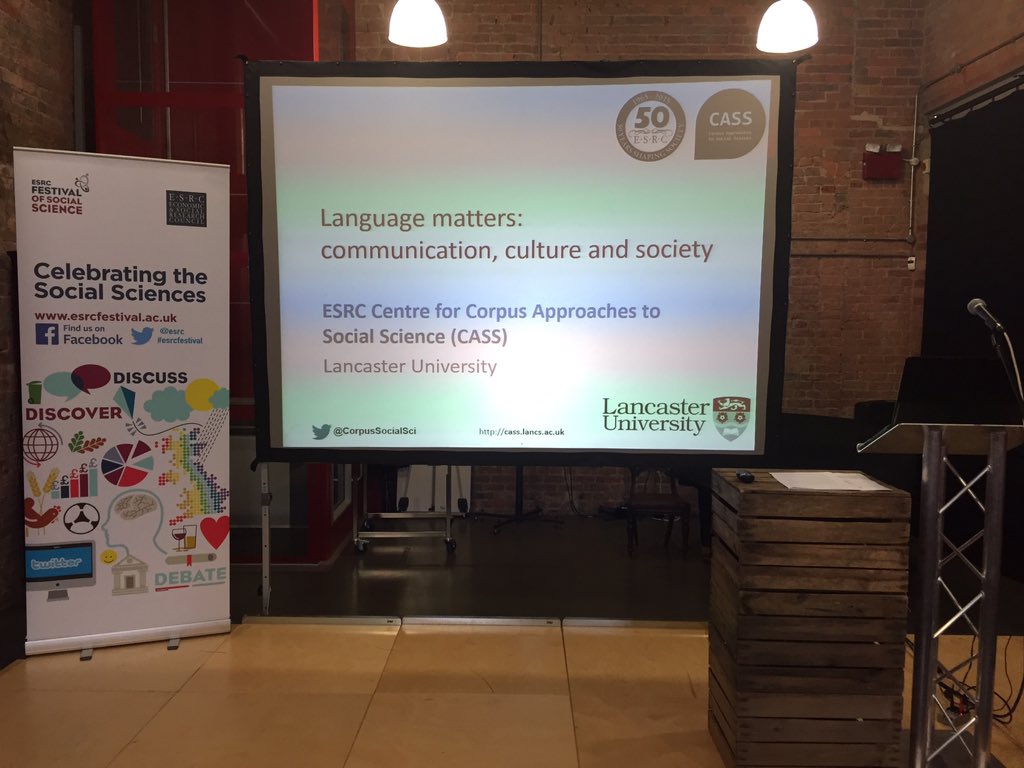
On 12th November, the CASS team made their way over to the International Anthony Burgess Foundation in Manchester for the ESRC Festival of Social Science 2015. The theme for this year’s event was “Language Matters: Communication, Culture and Society,” and it featured a series of four informal talks by CASS researchers based at Lancaster. The talks were pitched to a general audience, and gave the public the opportunity to hear renowned scholars talk about their lives, their work, and what they find most interesting about the relationship between language and society.
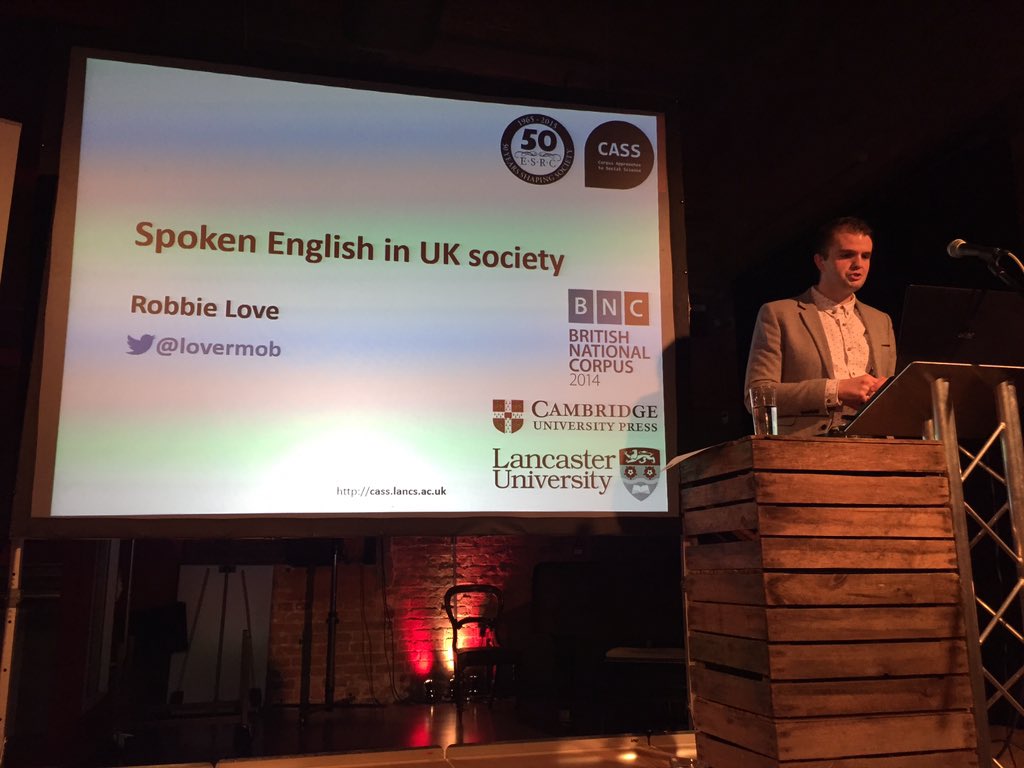
The first talk was by Robbie Love, a current PhD student in CASS who is working on the Spoken BNC 2014 project along with Cambridge University Press. The researchers are collecting 10 million words for the project, and it has received a great deal of media attention since it was announced last year. Robbie delved into some preliminary findings from the corpus, and explained how “fortnight, cheerio, catalogue, marvellous, and marmalade” are all on the decrease, whilst “treadmill, essentially, Internet, Google, and Facebook” are all on the rise. Some of these findings might be expected, but these subtle differences say a great deal about how our language usage has changed over the past 20 years.
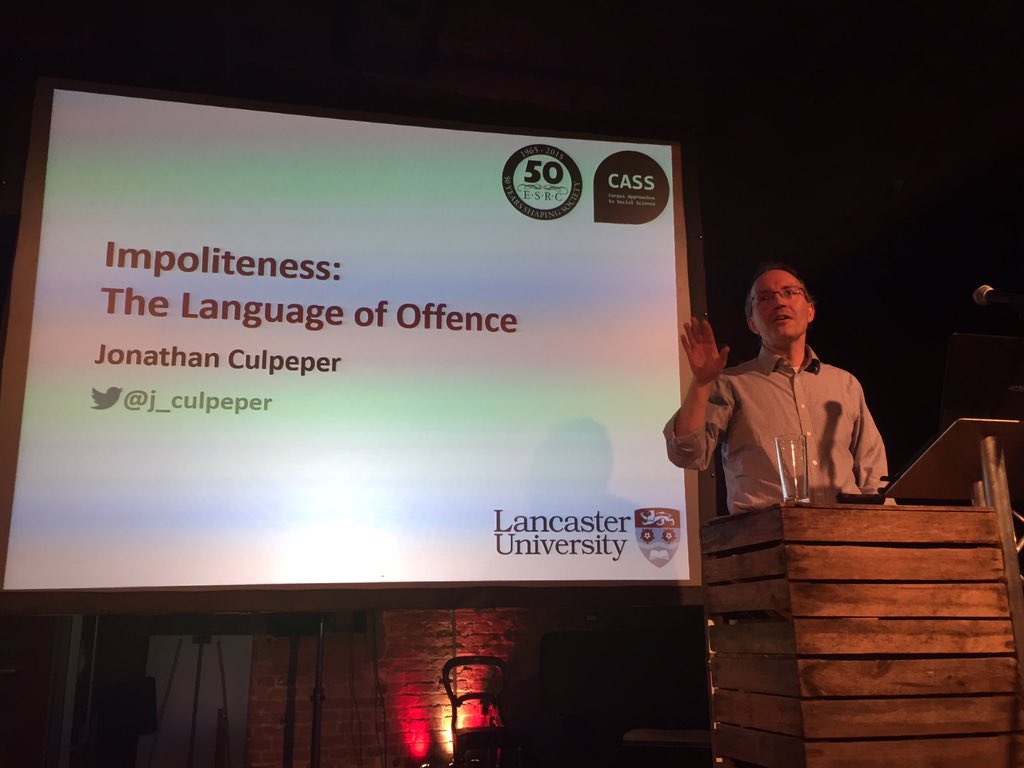
The second presentation was by Jonathan Culpeper who discussed “Impoliteness: The Language of Offence”. He drew upon several pieces of corpus research, and argued that impoliteness doesn’t necessarily stem from what people say, but rather the way in which they say it. The use of 3rd person constructions, sarcastic remarks, and reduced eye-contact can all signal impoliteness. He argues that impoliteness often fits into a category, such as insults, negative evaluations, dismissals, silencers, threats, or condescensions. By using corpus-based methods, Jonathan is able to determine the most common constructions which signal impoliteness, and then consider the subtle pragmatic cues that may accompany them.
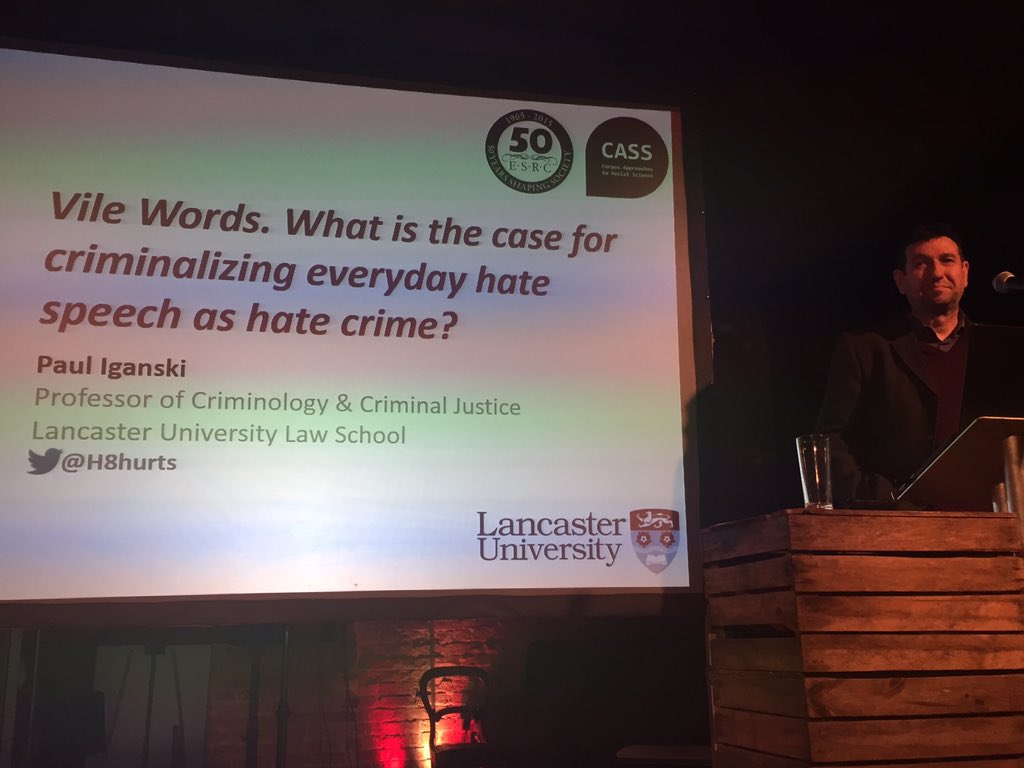
The third of the mini-lectures came from Paul Iganski (Law School). The presentation was entitled: “Vile words. What is the case for criminalising everyday hate speech as hate crime?” Considering that well over half of the racially and religiously aggravated offences in England and Wales in 2010-11 were categorised as “hate speech,” Paul considers both the legal and societal implications when the state criminalises language. He is firmly of the view that there is no such thing as “free speech,” as every nation state in the EU criminalises a form of hate speech. Furthermore, he argues that hate crimes hurt more than otherwise motivated crimes as they send a message striking at the core of the victim’s identity, and the restriction on “free speech” goes a long way towards protected minority groups in society.
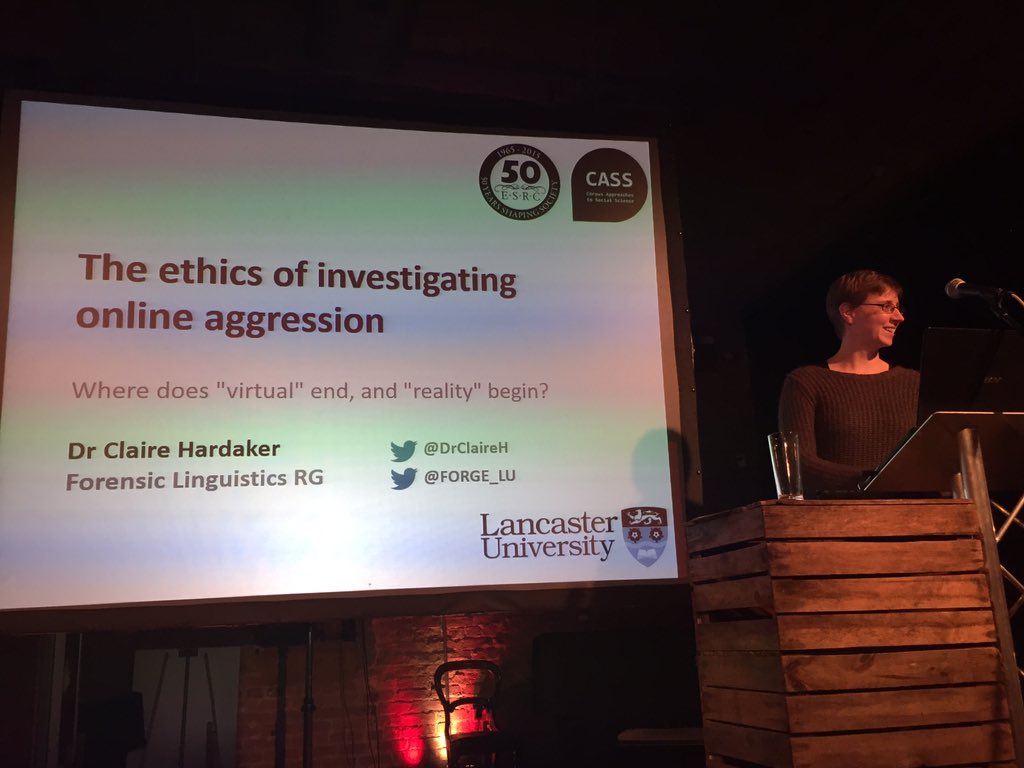
The fourth and final talk was from Claire Hardaker who discussed “The ethics of investigating online aggression”. Claire started by discussing the media’s culture when stories regarding online abuse arise. They tend to have an appetite for exposing online trolls, and want to put a real-life face to the otherwise faceless online character. Claire went on to describe how easy it is to track someone down based solely on the information they give away on their Twitter accounts. Academics, for example, often promote their position and institution on their profile, and a quick internet search can lead someone straight to the individual’s office. This information can be used by the media, and Claire discussed how the media essentially witch-hunted a 63-year-old troll called Brenda Leyland, despite her comments not actually being considered criminal under British law. There’s a constant, sensitive conflict between ethics and the online environment, and Claire argues that whilst we need to publish about our research, we must do so without endangering anyone involved.
After the four presentations came to a close, visitors had the opportunity to meet with the speakers, talk about their research, and network with other attendees.
I’d like to personally offer my thanks to not only the speakers for offering their time throughout the day, but to everyone who joined us in the audience too. I think you’ll agree that it was a huge success, and the day really highlighted why corpus-based research is so important for uncovering the fascinating relationship between language and society.
